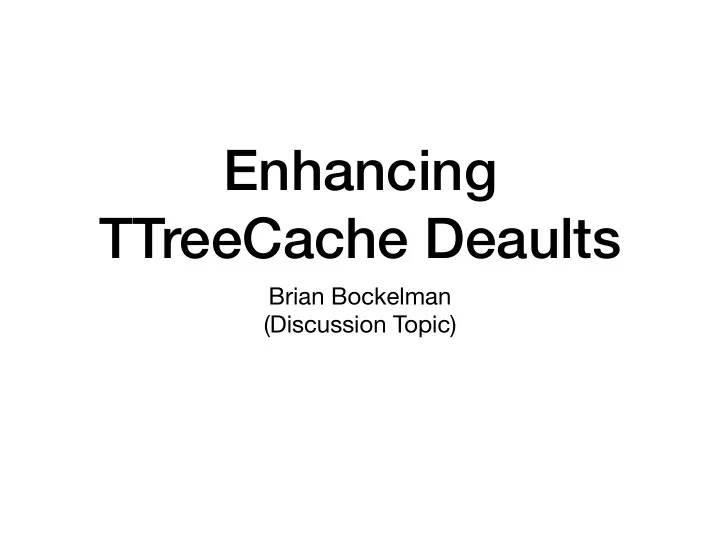

Enhancing TTreeCache Deaults Brian Bockelman (Discussion Topic)
Goals • Make ROOT IO: • Work well over high-latency links • Work quickly on low-latency devices. • Optimize for analysis use cases (assuming experiments will pick reasonable defaults).
Available Techniques • TTreeCache on by default: DONE (2016?) . • Prefetching (TFile.AsyncPrefetching): Read event clusters in separate thread prior to the first requested. • Not enabled by default (believed to deadlock CMSSW; issue not triaged). • “Miss Cache”: When a cache miss occurs, allocate a bu ff er for the entire event cluster and prefill it with all active branches. • https://github.com/root-project/root/pull/240 Stalled!
Potential Pitfalls • What can go wrong? • Incorrect training is forever : read patterns that di ff er after the training period are always un-optimized. • Miss cache “fixes” this because penalty for incorrect training is significantly decreased. • Now that we have the “prefill” mechanism, can we simply re-train every file? • Do we need to change the “drop-behind” behavior ? Once we go beyond the current event cluster, its contents are dropped. Should we triple-bu ff er? • One bu ff er for the previous event cluster. • One bu ff er for the current event cluster(s). • One bu ff er for the event clusters currently being prefetched.
Potential Pitfalls • How do we detect a “random event access” use pattern? What should we do when it is detected? • Example policy: when more than 10 event cluster skips are detected per file, only use miss cache. • What considerations should be made for multiple TTrees per file? • Should we really launch a prefetch thread per TTreeCache? • Should we optimize only the biggest TTree? Should we lock TTrees below a certain size into memory? • Low-latency devices (NVMe, SSD): TTreeCache and friends are relatively computationally expensive (we think!) compared to cost of reads from an NVMe-class device. Should we detect this case and auto-disable: • Proposal: If the EMA of read operations is below 1ms, then disable TTreeCache at next prefetch event.
Recommend
More recommend